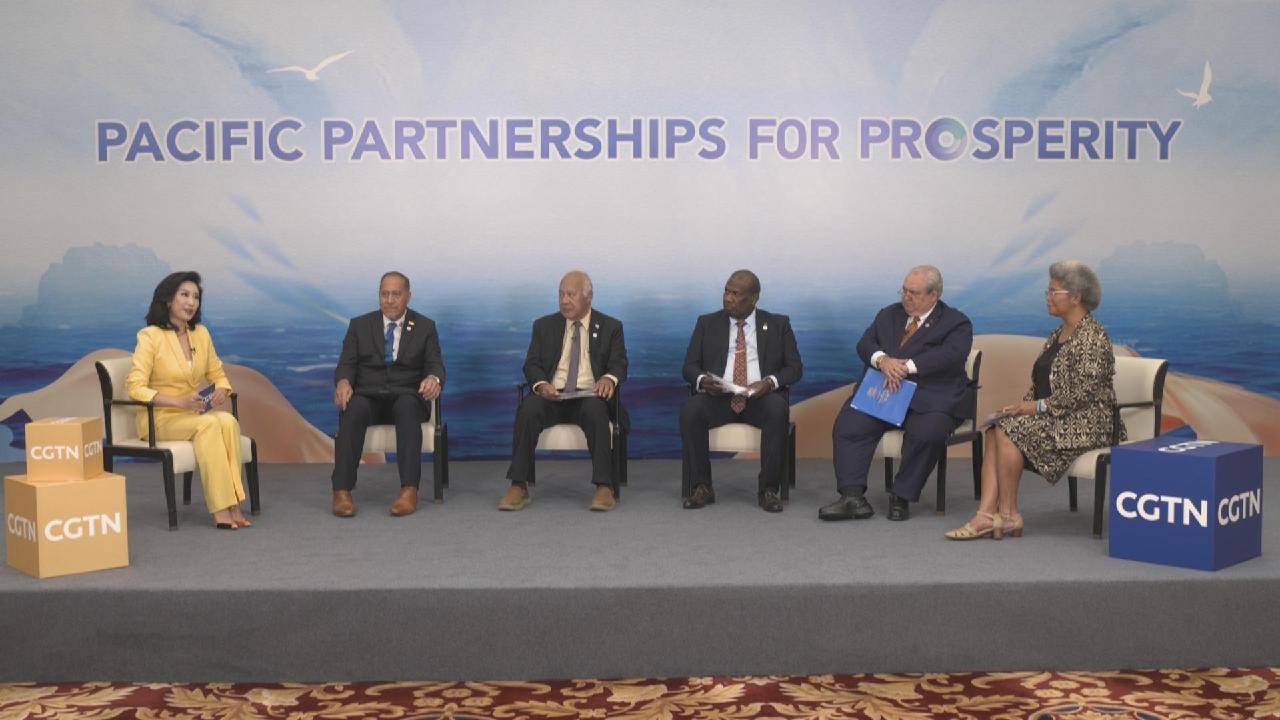Pacific Islands Foreign Ministers Engage in Dialogue with CGTN to Strengthen Regional Cooperation
Pacific Islands foreign ministers engage in key dialogue with CGTN to discuss regional issues

The Third China-Pacific Island Countries Foreign Ministers' Meeting concluded in Xiamen, Fujian Province, marking a significant step forward in the diplomatic relations between China and key Pacific Island nations. Held from May 28 to 29, the meeting featured the "China-PICs Dialogue: Pacific Partnerships for Prosperity" roundtable, where diplomats and top government officials from Niue, the Federated States of Micronesia, Vanuatu, Papua New Guinea, and Fiji gathered to explore paths for deeper cooperation and joint development.
Dalton Tagelagi, who serves as both Prime Minister and Foreign Minister of Niue, reflected on the half-century of formal ties with China. He emphasized that this relationship is firmly anchored in mutual respect and understanding. Significantly, Niue's leader reiterated the country's steadfast support for the one-China principle, underlining a core tenet of China's foreign policy in the region.
Representing the Federated States of Micronesia, Foreign Secretary Lorin Robert described the current partnership with China as "mature." Robert outlined five priority areas for future cooperation: respect for sovereignty, sustainable development and joint climate action, people-to-people exchanges, increased trade, and enhanced diplomatic alignment through ongoing dialogue. These sectors are expected to lay the groundwork for more robust and comprehensive engagement between Micronesia and China.
Marc Ati, Vanuatu’s Foreign Minister, also publicly endorsed China’s vision of constructing a "community with a shared future" involving Pacific Island countries. Expressing optimism about future prospects, Ati called for expanded collaboration in infrastructure development, public health, agriculture, climate change mitigation, and trade—a sentiment widely echoed by other Pacific representatives at the dialogue.
Papua New Guinea’s Foreign Minister Justin Tkatchenko stressed China’s essential role in his nation’s continued development, particularly through active participation in the Belt and Road Initiative. He voiced aspirations for an even closer partnership with China, highlighting notable achievements such as the successful Juncao agricultural project, which has opened new market opportunities for local producers.
Fiji’s Assistant Foreign Minister, Lenora Qereqeretabua, underscored the understanding and respect that characterizes her country’s relationship with China. She noted the significance China places on appreciating the national identity, traditions, and culture of Fiji—an appreciation that Fiji reciprocates wholeheartedly.
The dialogue did not solely focus on political and economic issues. Important discussions were held around social development topics, including poverty alleviation and educational cooperation. Tkatchenko highlighted the impact of the "China-Papua New Guinea Friendship School," which annually trains more than 3,000 students, illustrating how educational initiatives can foster young talent and strengthen bilateral ties.
By the end of the forum, there was a shared sense of optimism among all delegations. Each Pacific Island country expressed a robust commitment to further deepening their partnerships with China, aiming to address both current challenges and future opportunities through collaborative efforts and mutual respect.
This high-level gathering, broadcast for a global audience, signaled a new chapter in China-Pacific Island countries relations, centered on sustainable development, practical cooperation, and shared prosperity.




